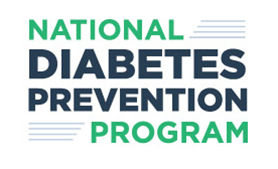Chronic Disease Prevention
Could you be at risk for prediabetes?Click the link below to take the Centers for Disease Control and Prevention’s risk test to find out! |
Prediabetes-Risk-Test
Diabetes Prevention Program Starting May 25th at 12p.m.
- cardiovascular disease that can lead to heart disease or stroke
- nerve damage resulting in discomfort and possible eventual amputation of fingers, toes or limbs; digestive system issues with nausea, vomiting, diarrhea or constipation; and, in men, erectile dysfunction
- kidney damage leading to problems filtering waste from your blood with severe damage leading to kidney failure or end-stage kidney disease, which may require dialysis or a kidney transplant
- eye damage such as cataracts, glaucoma and damage to the retina, potentially leading to blindness
- foot damage due to poor blood flow or nerve issues that can result in serious infections that heal poorly and may ultimately require amputations
- skin conditions such as bacterial and fungal infections
- hearing problems, which are more common in people with diabetes
- dementia such as Alzheimer’s disease
- depression, which is more common in people with diabetes and can have the additional problem of negatively affecting how well you manage your diabetes
Fasting Blood Sugar Test: Measures your blood sugar after an you haven’t eaten for at least 8 hours, through a finger stick or blood draw.
Glucose Tolerance Test: Measures your blood sugar before and after you drink a liquid containing glucose. This test is done after you fast overnight before the test and after drinking the liquid, through a finger stick or blood draw at 1 hour, 2 hours, and possibly 3 hours afterward.

Wicomico County Health Department’s Diabetes Prevention Program is an evidenced based program developed by the Centers for Disease Control and Prevention. It is a lifestyle change program for preventing type 2 diabetes.
- It can help people cut their risk of developing type 2 diabetes in half.
- The Diabetes Prevention Program research study showed that making modest behavior changes helped participants lose 5% to 7% of their body weight (that would be 10 to 14 pounds for a 200-pound person).
- These lifestyle changes reduced the risk of developing type 2 diabetes by 58% in people with prediabetes.
- Participants work with a lifestyle coach in a group setting to receive a 1-year lifestyle change program that includes 16 core sessions (usually 1 per week) and 6 post-core sessions (1 per month).
- Participants learn how to eat more healthily and decrease the fat in their dietary intake.
- Participants are also coached to increase their physical activity.
- Tracking food intake and monitoring activity are important components of the program.
For more information or to see if you are eligible, call (410) 334-3480.

